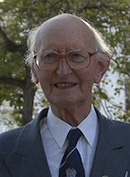
The death occurred early Thursday afternoon of Tomas Mac Giolla, former President of Sinn Fein and in later years held the same position as head of the Workers’ Party.
Mr Mac Giolla was TD for Dublin West (1982-1992) and Lord Mayor of Dublin (1993/94). He was 86 and is survived by his wife May (nee McLoughlin) and his sister Evelyn and his nephews and nieces.
Mr MacGiolla passed away in Beaumont Hospital, Dublin early this afternoon. He had been ill for some time and had been in hospital for the last week.
Tomas Mac Giolla was born in to a farming family at Nenagh, County Tipperary on January 25th, 1924. He was a nephew of the Irish Parliamentary Party MP, T.P. Gill. He was educated at St. Flannan’s College, Ennis, County Clare and in University College Dublin where he completed a degree in Commerce. He subsequently worked as an accountant with the ESB from 1947 until he became a full time public representative for the Workers Party in the late 1970s.
M. Mac Giolla joined Sinn Fein around 1950 and stood unsuccessfully for his first election for Sinn Fein in North Tipperary in the 1961 general election. He was elected President of Sinn Fein in 1962 which was the same year in which the late Cathal Goulding became Chief of Staff of the IRA.
In the split between Official Sinn Fein and (Provisional) Sinn Fein, Mr Mac Giolla remained with Official Sinn Fein, transforming it form an armed republican movement into a socialist political party through ‘Sinn Fein - The Workers’ Party’ and finally as the Workers’ Party.
Paying tribute to Mr. Mac Giolla this afternoon, the current Workers Party President Michael Finnegan, who is Mr Mac Giolla’s former director of elections in Dublin West, said that Tomas Mac Giolla was “a greatly underestimated figure in Irish politics who played a major role in the struggle for civil rights and democracy in Northern Ireland and for people’s rights throughout Ireland and internationally”.
Sinn Fein President Gerry Adams and the party’s Dail leader Caoimhghin O Caolain expressed their sympathy to Mr Mac Giolla’s family.
“There were extremely sharp and sometimes tragic divisions between Mr Mac Giolla’s party and ours,” Mr O Caolain said.
“However, it is widely acknowledged that Tomas Mac Giolla acted according to his beliefs and in latter years his party and Sinn Fein occasionally shared platforms on issues of common concern such as Irish neutrality.”
A Workers’ Party member and blogger known as ‘Garibaldy’ wrote today that Tomas MacGiolla “was, in every sense, a giant of a man”.
“As anyone who met him knew, he was a man with a tremendous passion and zest for life, something he shared with May, his wife of so many years. They also shared a deep and strong commitment to the politics of Tone and Connolly, and were bound together by life-long activism.
“Tomas’ love for an teanga duchais helped shape his life almost as much as his commitment to republicanism.
“Tomas was a man of tremendous vision. His was a pivotal role in the transformation of the Republican Movement in the course of the 1960s and 1970s that culminated in the adoption of the simple title of The Workers’ Party in 1982.
“Together with Cathal Goulding, he led the move away from sterile and narrow militarism towards a party of and for the working class. His was a strong and insistent voice that Republicans must make themselves and their struggle relevant to the people of Ireland.
“His was a powerful voice against sectarianism. He saw that the real enemy of the plain people of Ireland was not just partition but the rotten and oppressive political and economic system north and south that gave free rein to corruption and bigotry, that destroyed communities in cities as well as the countryside, that exiled the young, and that divided the people of Ireland. Without an end to economic exploitation, he told Republicans, there can be no freedom. To quote from his speech to the Ard Fheis of January 1970:
‘Our objective is the re-conquest of Ireland from the Ground Landlords, the river barons, the speculators, the cartels and the monopolies and the struggle against them will now be intensified. If needs be, we must be prepared to win back our country farm by farm, river by river, mine by mine, shop by shop, and factory by factory.’”
![[Irish Republican News]](https://republican-news.org/graphics/title_gifs/rn.gif)
![[Irish Republican News]](https://republican-news.org/graphics/title_gifs/harp.gif)

